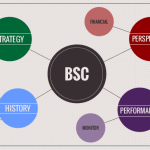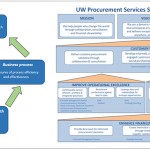The Balanced Scorecard: Influencing CFOs to become the Business Leaders of the Future

Modern practices have provided enough proof to show that performance management has a tendency to alter organizational processes and to shift mentalities. It is of little surprise that archaic business functions, such as the financial one, find themselves in need for refinement.
The question that inevitably comes to mind is: Are the persons in charge aware of the transformation? Are Chief Financial Officers the financial leaders that organizations expect them to be?
The Balanced Scorecard approach to financial performance monitoring has shifted its focus from bottom line spreadsheets to financial strategy. The Chief Financial Officer is compelled, therefore, to reconsider his role within the top management team.
The more a CFO’s role in the company expands, the more value that company draws on the execution of its overall strategy. In the same manner that the Balanced Scorecard focuses on more than its financial perspective, so should the CFO report not only on financial results, but also reveal their end-to-end significance to the entire company.
More explicitly, the Chief Financial Officer of today is expected to use his/her analytical skills to overcome performance driven challenges and to encourage business growth. In the present business environment, the CFO is required to not only record financial data, but also to interpret the numbers for future forecast and decision-making.
In the context of performance management, re-modelling the rigid structure of the financial function is one of the hardest things to do. Communicating financial results to executives in a manner that encompasses the company’s full value chain and operational engagement may be perceived by CFOs as a time consuming demeanor that does not always fit the job description.
Furthermore, CFOs are generally more concerned with regulatory aspects, such as financial compliance, rather than improving performance in an organization. Either way, the increased demand for performance achievement and strategic orientation call for a reassessment of CFO positions within organizations worldwide.
Long story short, CFOs of today must do better than duplicate the role of their controllers. Consequently, an effective way for CFOs to get involved in the strategy formulation and execution processes of an organization is for them to deploy the Balanced Scorecard implementation process.
CFOs – From Financial Controllers to Strategic Leaders
Beyond their purpose of connecting strategic objectives to day–to-day operational activities, Balanced Scorecards provide an in-depth view on financial tracking, as well as non-financial parameters that aid financial forecasting.
A strategically focused CFO ensures that financial indicators track not only performance, but they also reveal trends, raise awareness to risk and highlight business opportunities. Of course, there are the rigid financial metrics such as $ Earnings before interest and taxes (EBIDT), %Return on equity (ROE) and %Net profit margin that are too specific and lagging to create value in the future but, nonetheless, indispensable when evaluating past performances.
Altogether, just as everything evolves with progress, so do performance indicators. Continuously refining financial indicators so that they are aligned with business and market trends, consumer behavior changes and technological advancements, must be the duty of the modern CFO.
Performance indicators such as $Liability adjusted cash flow yield (LACFY), $Cash burn, $Cash build, $Net cash position and %Bad debt expense, can stand out as refined indicators which can be both lagging, and leading, in their contribution to management decision making.
Successful CFOs must also pay special attention to calibrate their finance team and spot new talent. By actively taking part in the recruitment process, CFOs provide a valuable insight into the level of financial knowledge a promising candidate possesses. By delivering in-house trainings, a CFO can acquire a better perception of an employee’s competencies, as well as find reasons to rethink competencies required for their future promotions.
Team scorecards can be a useful tool in creating the performance-oriented financial team that modern CFOs need. These performance monitoring tools enable objectives to be achieved by increasing alignment of individual tasks with the overall expectations of the financial team, and the organization, as a whole.
By sponsoring and supporting the implementation of team scorecards, the CFO can add value to the financial department and instill the advantages of balanced reporting on his team.
Excel is an outstanding tool for designing a trial template of the financial team Balanced Scorecard. Tests performed over a relevant period of time can provide the CFO with substantial insights on the benefits and challenges the team Balanced Scorecard brings to the financial department. A pilot Balanced Scorecard for the financial team can be easily designed with Microsoft Excel as follows:

Additional strategies for CFOs to smoothly embrace their transition from lead controllers to strategically oriented leaders would be:
- Employee empowerment: transferring designated workload to create capacity for high value work;
- Identifying value: focus on the key business drivers of the organization when delivering the strategic agenda;
- Building knowledge: using all available information resources to collect both financial and non-financial data;
- Monitoring performance: selecting the right set of performance indicators to adequately convey the meaning of the organization’s value propositions; encouraging the use of customer oriented indicators, such as# Repeat customers and # Customer satisfaction index can contribute to cohesive strategy delivery and decision making across all levels of the organization;
- Upgrading technological infrastructure: business intelligence tools are an investment made for long-term productivity and operational efficiency and, additionally, they guarantee higher returns (ROI) when used to build on performance;
- Sharing practice knowledge: use influence to emphasize the importance of a performance oriented culture as well as encourage propensity for financial literacy.
Although the transition from financial controller to strategic leader, might be a challenge for most CFOs, the process of becoming tomorrow’s leader in finance is based on adaptation to market trends. As the main business trend of today is performance management in its entirety, implementing the Balanced Scorecard might just be the way out of the rigid, outdated CFO’s financial role.
Image source:

Tags: Balanced Scorecard, Performance Management





